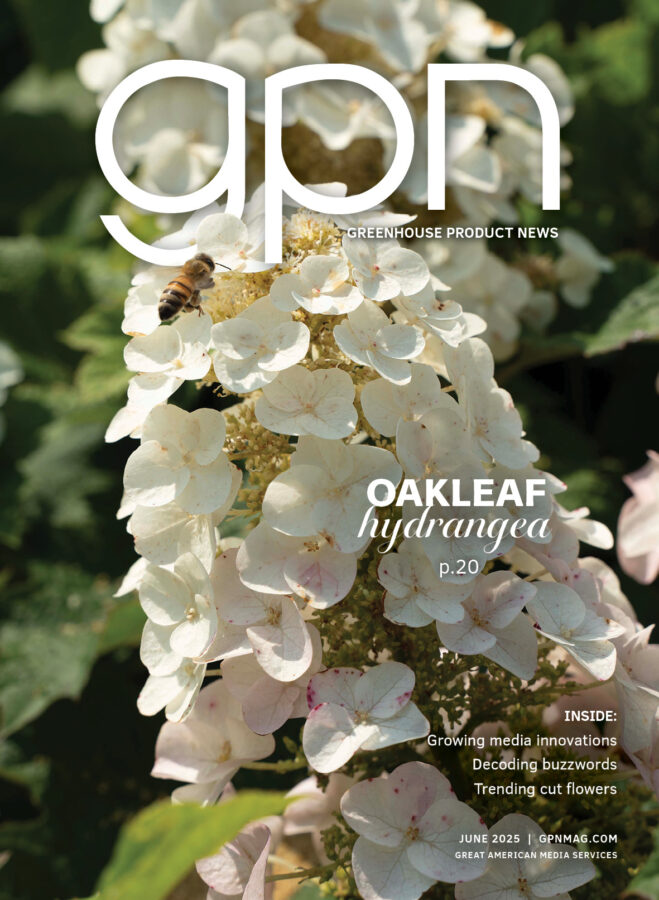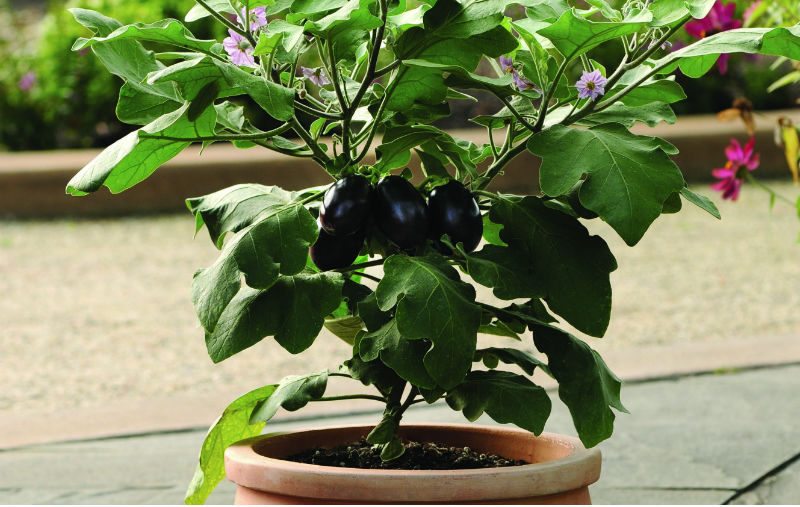
Vegetable Trends: Veggies in the City
Urban, small space, container gardening. These are just a few words used to describe current vegetable gardening trends. The average garden size is shrinking as more people choose to live in urban areas. At the same time, we often hear buzz words like: eat local, slow food, carbon footprint, heirlooms … The combination of less space for consumers to grow their own vegetables and their desire to produce their own food has created unique challenges for vegetable breeders.
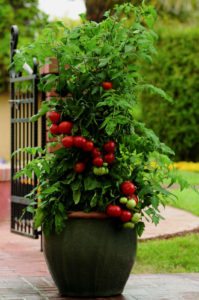
The overarching goal of vegetable breeding for home gardeners is to help them be successful. The odds are not in a gardener’s favor when growing vegetables in an urban environment as not all vegetables will perform well. The factors include space restrictions, short growing season, lack of pollinators and disease pressure. Today plant breeders are helping you help gardeners grow the vegetables of their dreams by selecting for traits that minimize the shortcomings of urban landscapes. Let’s break down these factors and see what plant breeders are working on to help urban gardens flourish.
Space Restriction
Chances are gardeners living in an urban area don’t have an acre to grow vegetables — more like a few square feet on the patio, balcony, window ledge, or if they’re really lucky, a community garden plot. Every inch of their space is precious, so look to grow varieties that are listed as short-vine, compact or dwarf.
Homegrown tomato flavor cannot be beat but it can be difficult to find the right variety to set fruit in a restricted space. Consumers that want to harvest fruit all season long without replanting will look for an indeterminate variety. Wait, wait, but we said small space and indeterminates will continue to grow throughout the season! Try looking for a “dwarf” indeterminate.
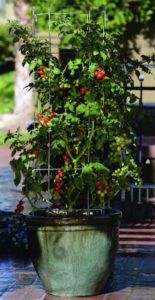
red fruit throughout the season without the plant getting too large, with resistance to Fusarium Race 1 and Verticilium. Days to maturity: 50-55.
These varieties will produce fruit throughout the season but have a more restricted growth and are great for small spaces or large containers. For harvesting a lot of fruit at once (perfect for canning, preserving or throwing a party) determinate varieties will set fruit in a shorter time frame, allowing most of the fruit to ripen for a single harvest. For small containers, try a dwarf determinate tomato. These are bred for their small habit, but often have the same fruit yield as standard side determinate plants.
For cucurbit crops (watermelon, melon, cucumber, winter squash, pumpkins, etc.) look for “short-vine” varieties, which will grow in a more compact habit but still produce great fruit. Short-vine cucurbits can be grown in- ground or containers and often require less water than traditional larger varieties. Try trellising your cucurbits to free up some of that precious square footage. Just remember: If you trellis a vine that produces heavy fruit, you might need to support the weight of the fruit so it does not break off before ripe.
Short Growing Season
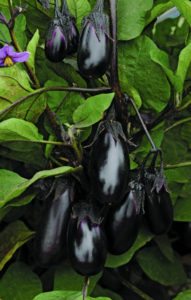
Gardeners’ favorite vegetables might include winter squash, heirloom tomatoes and hot peppers, but these often take a long time to mature and chances are they are only able to grow for a few short months each summer. With space restrictions, they may not have the luxury of crop extension tricks such as starting plants inside during the cooler weather or using plastic tunnels to protect their crop from freezing temperatures.
When choosing varieties for urban environment gardeners, look for “days to maturity” and calculate if the fruit will ripen before the weather gets too cold. Days to maturity (ripe) are often calculated from the time gardeners transplant until harvest of the first ripe fruit. Be sure to add a few weeks on to allow continued ripening so they can enjoy the fruits of their labor. Look for “early maturing” varieties, which are bred to ripen more quickly than standard varieties for better yields in your small space garden.
Lack of Pollinators
Urban areas are not always ideal environments for pollinators to live but many traditional varieties of vegetables require insect pollination to set fruit. This can be very frustrating to gardeners that live on the 20th floor with cucumbers that are not setting fruit!
Plant breeders are helping get around this problem by selecting for varieties that set fruit without pollination. These are sometimes called “parthenocarpic” varieties. For some crops, such as cucumber, they are also referred to as “seedless” varieties. So long as they’re provided water, nutrients and light, parthenocarpic varieties will produce fruit without being visited by a pollinator.
Disease Pressure
Keeping vegetables heathy can be a struggle for all gardeners, no matter the size of their plot. But urban gardeners are restricted with what they can do to treat plants, leaving them susceptible to a range of pathogens including virus, bacteria and nematodes. One of the best ways to help them be successful in urban areas is to choose varieties that are disease resistant.
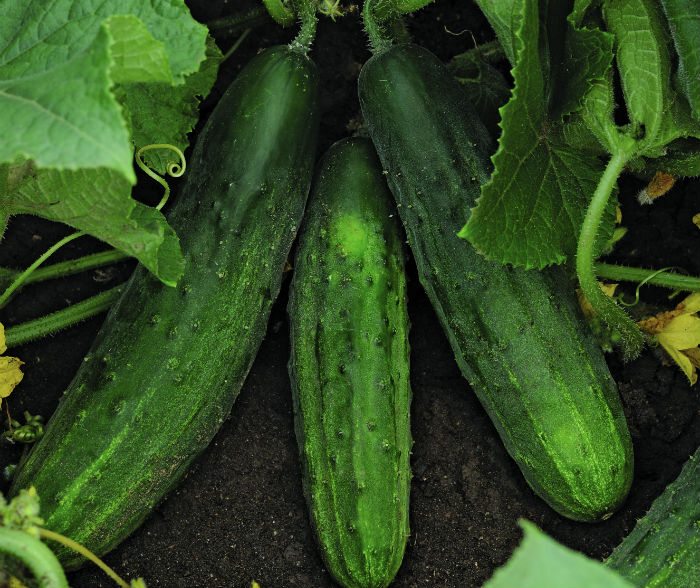
Plant breeders are working tirelessly to improve the disease resistance of crops by selecting plants that are more resistant to specific pathogens. This is a slow process and resistance may not be available for every pathogen gardeners encounter. Some common diseases include powdery mildew on cucurbits, early blight and late blight on tomato, and bacterial leaf spot on pepper. Vegetable pathogens vary according to location, humidity, temperature, time of year and a host of other environmental factors. A successful vegetable grower should take some time to research common vegetable pathogens in their customers’ locations and select varieties that offer resistance.
Vegetable gardening is a timeless hobby enjoyed by people of all ages and is a great gateway to education and healthy eating. Plant breeders are developing varieties that survive in small spaces, ripen in a short period of time, set fruit without pollinators and resist common pathogens, all in an effort to make the modern gardener – and you, the grower – successful. It might take a bit of research to find the varieties best suited for your customers’ gardens, but once they taste that homegrown flavor, they’ll never forget to eat their vegetables!








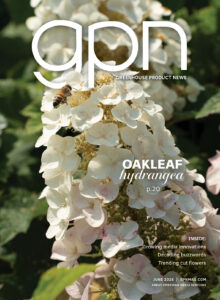
 Video Library
Video Library 

















